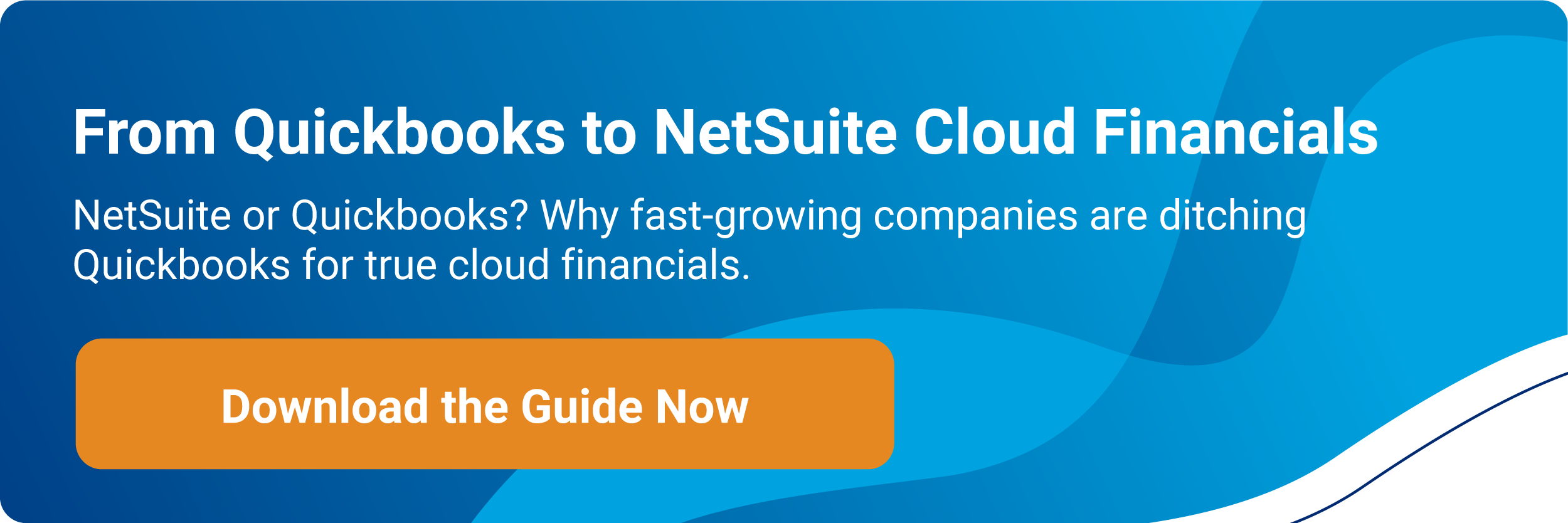
In the early stages of a business, many finance teams rely on Excel and QuickBooks to manage financials. While both can be appropriate for a young business, many companies continue to rely on limiting processes for longer than they should, fearing that more robust systems would be too costly or that training staff would be time-consuming and complex. But at some point, it becomes inevitable—you need a QuickBooks alternative if you want to continue to grow.
More and more, CFOs are looking for cloud-based QuickBooks alternatives. While notable for basic bookkeeping, using QuickBooks for anything more will be met with many limitations. For example, to analyze data, it must be exported from QuickBooks and imported into Excel. And when data is manipulated, it increases the chance of error. A study by the ACCA found that 90% of spreadsheets contain serious errors, yet 90% of spreadsheet users believe their own is correct. Additionally, according to a survey by the IMA, finance departments are most concerned with achieving real-time visibility, improving the management reporting cycle, and improving productivity. Yet, QuickBooks does not make these easy to achieve.
When looking for an alternative to QuickBooks, where do you start? Many solutions offer a myriad of functionality to businesses large and small and in every industry. To find the right fit for your business, it’s best to take a step back and evaluate your current software stack first. This will help you see your gaps and what you need in a financial solution (and beyond).
- Do your current business systems integrate?
- What is the total spend on your existing software stack?
- Are you able to produce real-time business reporting?
- Are your systems scalable?
Let’s dig into these questions to better understand what it could mean for your business.
Systems Integration
This probably doesn’t come as a surprise to anyone. According to an Adobe study, more than 80% of business leaders say they encounter problems because their internal applications don’t talk to each other. As evident by that staggering number, it’s effortless to end up with this problem.
Few businesses start out needing (or being able to justify) a full suite of business software. But as needs begin to arise, problems are “solved” by acquiring one-off systems. Before you know it, you have disparate software for each function: finance, HR, marketing, distribution, inventory, etc. While each solution might work well for its respective team, businesses now have siloed data and no way to integrate critical function, leading to ineffective processes, wasted time, and a lack of visibility across the company.
When deciding if a QuickBooks alternative is needed, ask yourself this:
How would your business benefit from having all of your functions integrated?
IT Spend
Most businesses that start on QuickBooks do so because of its low cost. With a low price point of $20 a month, it is undeniably an affordable option. While cost is an essential factor, it shouldn’t be the only thing you consider when evaluating new software. Content expert Adam Fout says it best:
“Think about the features that are critical for your business. Price (and everything else) is secondary to a piece of software that saves you time or makes you money.”
If we think of QuickBooks in terms of TCO—the sum of the software’s direct and indirect costs—it might not be as cheap as once thought. Many users incur additional fees for add-ons, integrations, training, and support. Going one step farther, what inefficiencies are presenting themselves as a direct result of the software? How much time is wasted on workarounds and manual processes? It’s also important to consider the cost of the business’s entire software stack and if a comprehensive suite could consolidate it. It’s best to go into software evaluations with a clear picture of what you’re already spending and the functionality you’re seeking.
When deciding if a QuickBooks alternative is needed, ask yourself this:
How much are you willing to spend to solve the problems and inefficiencies that ail your business?
Reporting & Analytics
Data visibility is arguably the most crucial factor in a business’s success. Without the ability to see and analyze critical KPIs, you’ll have no idea what needs adjusting or which initiatives are driving revenue and should be continued. Unfortunately for QuickBooks, utilizing a disconnected accounting software makes it challenging, if not impossible, for users to gain access to meaningful, real-time business data.
On the other hand, comprehensive business management software, like NetSuite, captures every detail of a business event, process, or transaction. By pairing this data with built-in and configurable business intelligence tools, your company will access valuable insight—from the individual employee level to the company level.
When deciding if a QuickBooks alternative is needed, ask yourself this:
Would having access to timely, seamless, efficient, and cost-effective reporting and analytics help your business grow?
Scalability
Recently, we spoke with a wholesale distribution company who told us every time they would create an invoice; it would take QuickBooks seven minutes to load it. Can you imagine dealing with hundreds of orders a week and having to wait seven minutes each time? If you don’t have a calculator handy, that turned out to be roughly 11 hours of wasted time every week, just waiting for QuickBooks to process. Their extensive inventory was overloading the application, and it would come to a grinding halt.
The problem? Scalability (or lack thereof). While this may sound extreme, we hear anecdotes like these regularly.
- “We don’t have access to up-to-the-minute reporting that we need to make critical business decisions.”
- “We waste so much time playing “hunt the spreadsheet” because we’re doing more accounting outside of QuickBooks than in it.”
- “We’re losing sales because the sales team doesn’t have access to the customer’s financial records.”
If your business is expecting, or currently experiencing, growth, it’s high time to seek another solution (but we suspect you already are). Consider software that lets you easily add and customize functionality, support multiple currencies, manage subsidiaries, and more. A comprehensive system like NetSuite will scale with you to facilitate your expansion and provide the flexibility to grow.
When deciding if a QuickBooks alternative is needed, ask yourself this:
What are your biggest growing pains? What functionality do you need in business management software to take growth to the next level?
NetSuite as a QuickBooks Alternative
Suppose your company is struggling with the challenges we’ve discussed here. In that case, it may be time to consider an integrated business management suite that can add more value to your IT spend, provide up-to-date business intelligence, and scale as you grow. The first step in finding a suitable QuickBooks alternative for your business is determining what you have versus what you need. While we’d be willing to bet that NetSuite would check all of your boxes, take some time to ponder the questions we posed. Use that as a framework to help guide your search for the right solution.
Read More: NetSuite vs. Quickbooks [Which is Right For You?]
NetSuite’s unified suite of applications spans the entire business—from accounting to distribution to marketing and more, linking key business processes together on the same platform. NetSuite gives customers the critical visibility they need to make smarter, faster, more informed business decisions. Want to learn more about how Netsuite can help your business grow better? Schedule a custom demo today.




